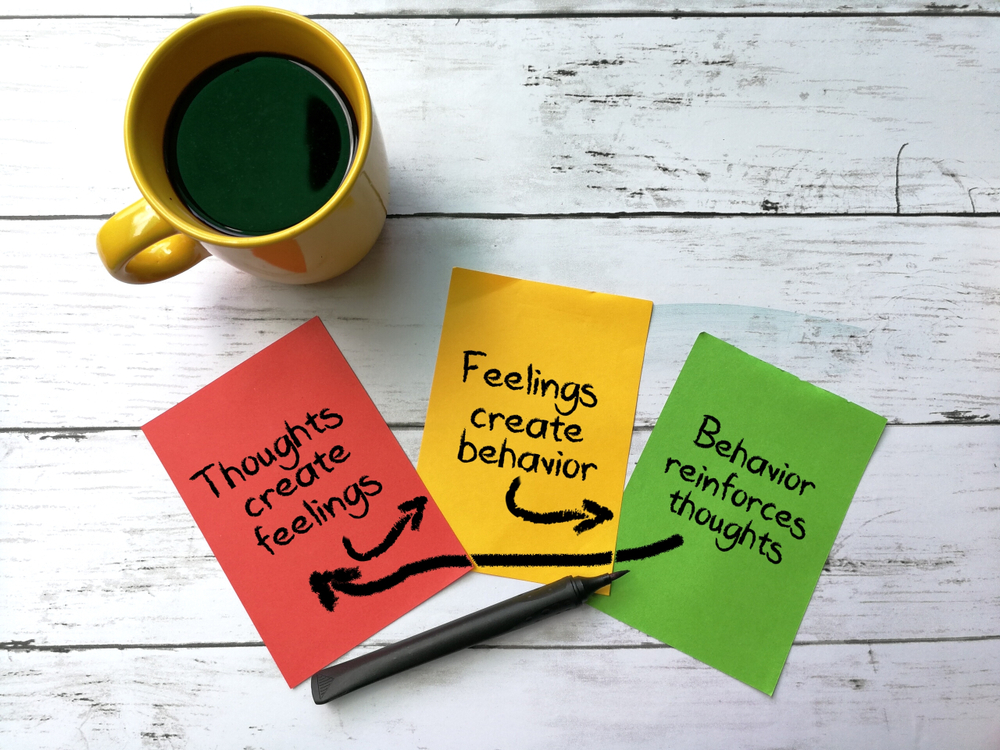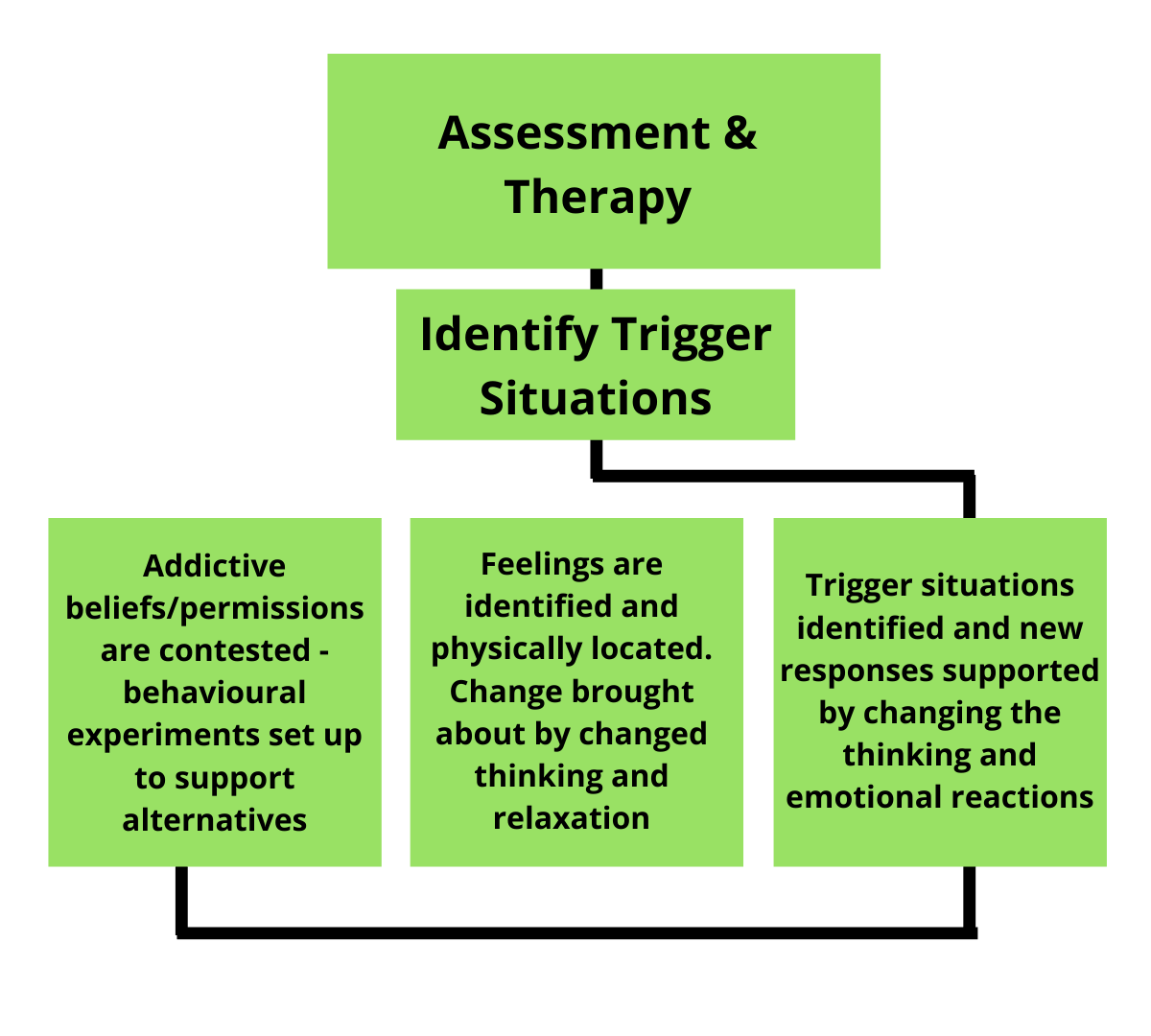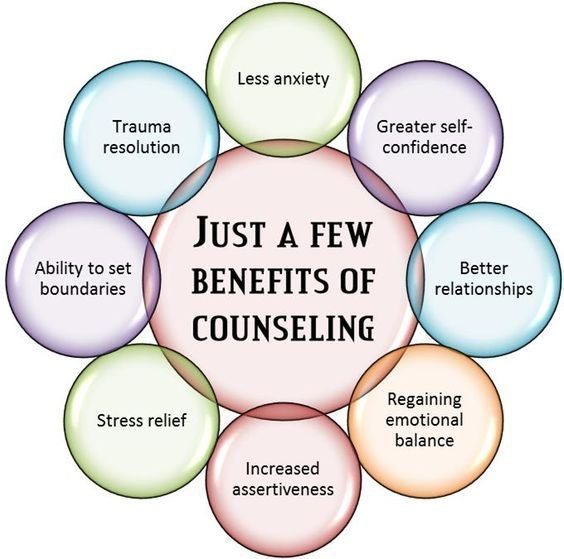0207 205 2845 0207 205 2845



CBT is a very effective form of therapy used today in addiction treatment. It can help you find links between feelings and actions to increase your awareness of how these things impact recovery.
CBT or cognitive behavioral therapy is a form of therapy that treats your thoughts and actions to provide meaningful change.
Let’s take a look at it further, and you can see how CBT can help you with a variety of mental health conditions.
CBT suggests that thoughts control how you see and feel about the world. It looks a what you learned in the past and what you believe about how things should be and how things are.
Thinking it through you can see that there are thousands of possible reactions that you could have, but what determines what you think and feel? Those internal beliefs that happen so fast in your mind that you will not notice them without paying careful attention to what is going on inside your mind. That evaluation or thought will happen and colour how you see things and help you evaluate the situation.

You’ve not had a good day, feel fed up and tired, so you go out for a walk. As you wander down the road, someone you recognise walks by and, seemingly, ignores you.
Automatic Thought: ‘She doesn’t like me.’
Question: ‘If that’s true, what does it mean about you?’
Underlying Belief: Answer: ‘I’ll never have any friends.’
Question: ‘If that’s true, what does that mean about you?’
Core Belief: Answer: ‘I am unlikable.’
This may result in you having a number of uncomfortable feelings. If you go home feeling depressed, you’ll probably reflect on what has happened and feel worse.
However, if your response is to get in touch with the other person, there’s a good chance you’ll feel better about yourself.
When we are distressed, we are prone to jump to conclusions and interpret things in an extreme and unhelpful way. If you avoid the other person, you won’t be able to fix any misinterpretations about what they think of you. You can begin to think quite unreasonable and disagreeable things about yourself.

Cognitive and behavioural strategies can help you to cut through this vicious circle of modified thinking, coping with secrecy, shame, and guilt feelings and behaviour. When you see the parts of the trigger points clearly, you can change them – and so change the way you feel. CBT aims to get you to a point where you can ‘do it yourself and work out your ways of tackling these problems.
One of the first things to accomplish in Cognitive Behavioural Therapy is to identify what your beliefs are about yourself and the world around you. The assessment is where the therapist will work with you to help you identify what your thoughts and beliefs are. While this sounds easy, you just talk about what you are thinking, but remember, these thoughts, these evaluations happen in a nanosecond, and you are not conscious of them. It takes time to identify what they are.
CBT and its related methods are used to treat a variety of mental health issues:
The most common of these are addiction, anxiety and depression. Cognitive behavioral therapy is particularly effective for these mental health conditions and is widely used by the NHS and private counsellors.
Using CBT techniques we can improve thought patterns, emotions and behaviors by breaking them down into smaller parts.
CBT varies from other kinds of psychotherapies because sessions have a structure, rather than the client talking simply about whatever comes up. At the start of the therapy, the client engages with the therapist to relate distinct difficulties and to set goals they desire to work towards. The problems may be symptoms in daily life, such as sleeping poorly, or difficulty concentrating on work. Or they could be life problems, such as feeling depressed, eating disorders, mental illness, having trouble dealing with childhood traumas, or being in an unhappy marriage.
These problems and goals then become the foundation for shaping the content of therapy sessions and addressing how to deal with them. Usually, at the start of a session, the client and therapist will mutually settle on the main topics they want to work on this week. They will further allow time for reviewing the outcomes from the previous session.

You can expect to have homework between sessions, as well as taking time during sessions to practice and review what you have done the past week. Change is never easy, and this kind of change takes time, effort, and most importantly, practice. Homework will be specific to you and the skills you are trying to learn.
CBT aims to identify and help you change your negative thought patterns. It is a very focused and directed form of therapy that allows the therapist to structure the sessions around your specific needs. Also, it is generally done as a brief form of therapy, with many lasting just 12-15 sessions, depending on individual need.
Being short term, it is very focused, and will be centred on the present; very little time will be spent learning about how you grew up. Therapy centred treatment is about helping who you are now and helping you figure out what is helpful and healthy, and what you need to change.
Cognitive Behavioural Therapy in rehab helps patients overcome drug addiction and alcoholism by:
Coping skills are another important aspect of Cognitive Behavioural Therapy. What is known about certain diseases like drug and alcohol addiction or depression is that certain symptoms just happen. They are biological in nature, and often are temporary, but require some help to get through them. That is where CBT comes in. CBT will teach you ways to cope and manage any types of distress that may happen to you. While it will be specific to you, there will be some general tips and helpful habits that they can give you so that you can start to live a healthier life overall.
Every person living under the weight of drug and alcohol addiction has unique circumstances which brought them there. Identifying and treating personal issues that prompt drug or alcohol abuse helps to reduce triggers and self-destructive behaviours.
IN CRISIS? Request a call back
CBT in rehab is an amazing tool to use to learn more about yourself and why you react the way you do, and then learn to actually evaluate what you are doing to see if it fits with reality. It is well researched and can be used to treat various diseases, including drug and alcohol addiction. Cognitive behavioural treatment can give you back a meaningful and healthy life. Help and healing are out there for you with this.
Many people suffering from an addiction have established a number of negative thinking patterns and beliefs. The slow accumulation of patterns or sequences of events that confirm or disconfirm expectations about the world on a more or less continuous basis can greatly affect your view of the future, your view of yourself, and your position with others.
Additionally, dialectical behaviour therapy is an evidence-based psychotherapy that uses traditional elements of CBT in partnership with other targeted approaches to treat addiction. Dialectical behaviour therapy teaches mindfulness, acceptance and distress tolerance, all skills which can be vastly beneficial during drug and alcohol recovery.
CBT is the cognitive branch of behaviour therapy. There are other types of behavioural counselling, and the other main one used for alcoholism and other addictions is DBT or dialectic behaviour therapy. Dialectic means two parts because DBT helps with behaviour and thoughts like CBT and treats mental illnesses. With more than half of people with an addiction having mental health problems, this is very important.
Alcohol and drug addiction counsellors generally agree that treating dependence without dealing with underlying mental health problems leads to relapse.

Many rehabilitation facilities incorporate CBT into an addiction treatment program. Using reframing and restructuring techniques, the addiction therapist will give you tools and activities to help first combat the unhelpful thoughts. It is a process, but changing your thoughts can be done. It involves slowing yourself down and evaluating each situation as it comes up. In other words, you act. You don’t react. The addiction therapist will teach you that by slowing down and asking yourself questions about the person, yourself, or the situation, you can often find other possible explanations, that are more in tune with reality, than the assumptions you typically make.
CBT is a great option if you know that you or a loved one is struggling with addiction. However, achieving freedom begins with contacting an expert to help point you in the right direction. You do not have to seek treatment alone or find a rehabilitation facility on your own. Contact us today to find a rehabilitation centre near you. We can give you the key to unlocking the door to a new path to life. Recovery is only a decision away.
Sources
https://pubmed.ncbi.nlm.nih.gov/29098680/
https://drugabuse.com/treatment-therapy/dialectical-behavior-therapy/